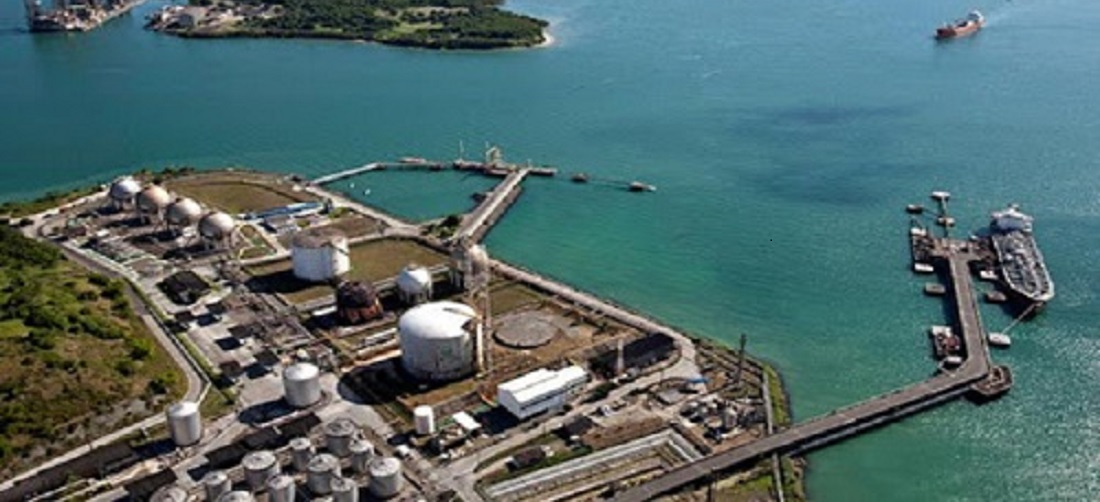
Public area of Port of Aratu threatened by squatters
Apr, 10, 2024 Posted by Gabriel MalheirosWeek 202415
A squatter settlement consisting of four residences and three commercial establishments, lacking any infrastructure, located within the perimeter of the Aratu Organized Port in the municipality of Candeias, is wreaking legal uncertainty among firms that depend on the terminal for hauling goods, as well as for those intending to invest in the area, deemed a national security zone.
The Bahia State Docks Company (CODEBA), a public enterprise owned by the Federal Government and the State of Bahia, has attempted to remove these occupants from the site, but without success, regardless of a judicial expert assessment indicating the life-threatening risk faced by these occupants, given that the port handles a significant portion of the chemicals produced in the Camaçari Petrochemical Complex.
A TARDE press agency gained access to the ongoing judicial process, unfolding since 2019 in the 4th Federal Court, in which CODEBA claims the area is unlawfully occupied by squatters. A virtual hearing was held last Friday, the 5th, but no settlement was reached.
Some occupants received compensation of R$400,000 each from CODEBA and voluntarily vacated the area, effectively withdrawing from the lawsuit. However, others declined the offered compensation and are pursuing recognition as quilombolas (African diasporic traditional communities), despite a judicial expert assessment confirming otherwise. The legal proceedings have been halted for 90 days.
One year after CODEBA filed the lawsuit to reclaim the unlawfully occupied area, the occupants self-declared as quilombolas before the Palmares Foundation, sparking the current confusion surrounding the issue.
Consequently, the occupants now demand possession of the entire area currently designated for port activities, including the entire Aratu Port, where units of BRASKEM, VOPAK, FAFEN, TECMAR, MAGNESITA CS PORTO DE ARATU, as well as the entire Dow Chemical Plant area, and the Ford Port, among others, are installed and operational, covering millions of square meters more than their current occupation.
In reality, these squatters derive their livelihood from commercial stalls located on the beach known as “PRAINHA,” having no ancestral connection to the desired land.
Risks
CODEBA’s CEO, Antônio José Rodriguez de Mattos Gobbo, discussed the company’s efforts to comply with ESG (Environmental, Social, and Governance) standards, which did not exist in the 1970s, and warned of the risks of families inhabiting the port area.
“The infrastructure developed in the 1970s certainly did not adhere to the same ESG criteria demanded by society today. This naturally created several critical operational distortions, such as families living within the area of an organized port, with a petrochemical focus, like Aratu-Candeias. This is a situation that must be addressed responsibly,” emphasized Gobbo.
“In this administration, CODEBA is initiating studies in technical cooperation with UNESCO to develop ESG projects, so that the relationship between the Ports of Bahia and the cities where they are located, and the people living in the areas influenced by the port boundaries, is strictly governed by international agreements on social policies, of which Brazil is a signatory, and are cornerstone guidelines of the Ministry of Ports and the Federal Government,” highlighted CODEBA’s CEO.
Economic Losses
In addition to the risks of accidents involving the squatters, their presence causes evident economic losses, as explained by CODEBA’s CEO.
“Port activities in Aratu-Candeias have been expanding, reflecting on the economic and social development of the state of Bahia, with influence in Sergipe, Alagoas, the western region of Pernambuco, and the eastern region of Minas Gerais. Port activities are not just a business venture. They are a public service. They generate jobs and sustain families as well,” stated CODEBA’s CEO.
Posthumous Notification
The company’s lawyers also draw attention to an unusual fact. The Federal Public Defender’s Office (DPU), representing the squatters, stated in a document attached to the records that they had met with their clients. Curiously, one of them, Afonso Pedro Celestino Filho, had passed away three years before the said meeting. In light of this, CODEBA, through its lawyers, requested clarification from the DPU, which, understandably, was not possible.
The report attempted to contact the representatives of the Federal Public Defender’s Office (DPU) and the Federal Public Prosecutor’s Office (MPF) responsible for the actions but was unsuccessful.
Source: A Tarde
Click here to read the original news piece: https://atarde.com.br/economia/area-publica-do-porto-de-aratu-e-ameacada-por-ocupacao-irregular-1265298
-
Other Cargo
Aug, 31, 2023
0
Brazilian machinery sector continues revenue decline, 2023 estimates revised downwards
-
Grains
Jul, 12, 2023
0
Brazil may become the world leader in corn exports in 2023, says Anec
-
Ores
Feb, 02, 2022
0
Mineral industry’s output increase 7% while revenue increases 62%
-
Sep, 06, 2019
0
Argentine food exports grow 17.6% between January and July


